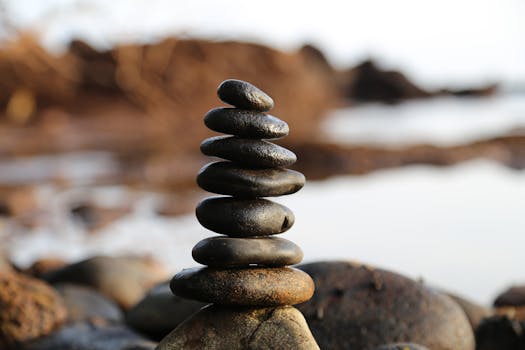
Mindfulness Practices to Enhance Daily Living
Mindfulness practices have been shown to have a positive impact on both physical and mental health. By incorporating mindfulness into your daily routine, you can reduce stress, improve sleep, and increase overall well-being. In this article, we will explore the benefits of mindfulness and provide tips on how to incorporate mindfulness practices into your daily life.
What is Mindfulness?

Mindfulness is the practice of being present in the moment, without judgment or distraction. It involves paying attention to your thoughts, feelings, and sensations in the present moment, without trying to change or react to them. Mindfulness can be practiced through various techniques, including meditation, yoga, and deep breathing exercises.
Benefits of Mindfulness

The benefits of mindfulness are numerous and well-documented. Some of the most significant benefits include:
- Reduced stress and anxiety
- Improved sleep quality
- Increased focus and concentration
- Enhanced self-awareness and self-acceptance
- Improved relationships and communication skills
Mindfulness Practices for Daily Living

There are many mindfulness practices that can be incorporated into daily life, including:
- Meditation: Take a few minutes each day to sit quietly, focus on your breath, and observe your thoughts and feelings without judgment.
- Yoga: Practice yoga to combine physical movement with mindfulness and breath awareness.
- Deep breathing exercises: Take slow, deep breaths to calm the mind and body.
- Body scan: Lie down or sit comfortably, and bring your attention to each part of your body, starting from your toes and moving up to the top of your head.
- Mindful walking: Pay attention to your feet touching the ground, the sensation of your feet moving, and the rhythm of your breath.
Tips for Incorporating Mindfulness into Daily Life

Incorporating mindfulness into daily life can be simple and straightforward. Here are some tips to get you started:
- Start small: Begin with short periods of mindfulness practice, such as 5-10 minutes, and gradually increase as you become more comfortable with the practice.
- Be consistent: Make mindfulness a regular part of your daily routine, ideally at the same time each day.
- Find what works for you: Experiment with different mindfulness practices to find what works best for you and your lifestyle.
- Make it a habit: Incorporate mindfulness into your daily routine, such as right after waking up or before bed.
Conclusion

In conclusion, mindfulness practices can have a significant impact on daily living, reducing stress and anxiety, improving sleep quality, and increasing overall well-being. By incorporating mindfulness into your daily routine, you can improve your physical and mental health, and enhance your overall quality of life. Remember to start small, be consistent, and find what works for you. With regular practice, you can experience the many benefits of mindfulness and live a happier, healthier life.






